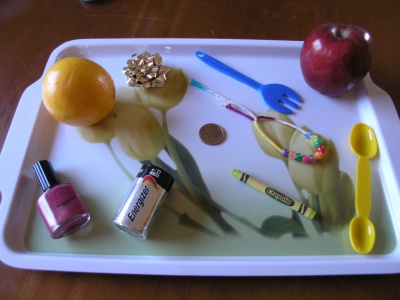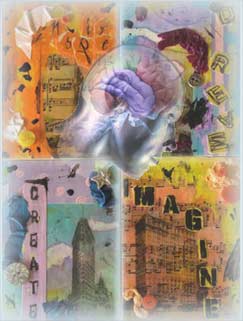Foundation Exemplars/Memory Training
AIMS:
To provide a deeper understanding of memory processes, and to motivate students to use memory techniques and strategies to improve their retention when studying for tests and exams
OUTCOMES:
•Understand the processes involved in memory
•Select and use new strategies for memorising study material
MATERIALS/RESOURCES:
•Hand-out on short-term & long-term memory - an eportfolio version is located at: [1]
•Internet access: list of links on BlackBoard including www.luminosity.com & www.memory-improvement-tips.com/brain-games.html
•Two games set up on trays: 20-items on a tray with recording sheets
•DVD: BBC documentary on the Human Mind: Get Smart - reference below or access on YouTube (3 parts) at: [2]
INSTRUCTIONAL PROCEDURES:

•Start with the 20-item memory game & have students record how many items they can remember
•Discuss memory & how the process works using the h/out
•Show highlights of video, especially section on the storytelling/linking strategy
•Have students access Memory Strategies Unit on BlackBoard for suggestions on techniques - firstly, h/out 1 & secondly, ideas from: Neuroscience for Kids: Memory Exeriments
•Access memory games & memory training – have students select & focus on one or two techniques they want to try themselves
•End with the second 20-item memory game & try to use a strategy they have discovered in class
•H/wk – attempt to learn a list from Anatomy & Physiology, BioScience, etc., that they have previously been unable to learn well, using the storytelling/linking strategy & report on this in a paragraph reflection
EVALUATION:
•Engagement in memory activities can be used a check point
•Paragraph reflection
•In-class assessment with a paragraph on the memory process
Reference:
Winston, R. (2003). Get smart. The human mind: and how to make the most of it. BBC.
